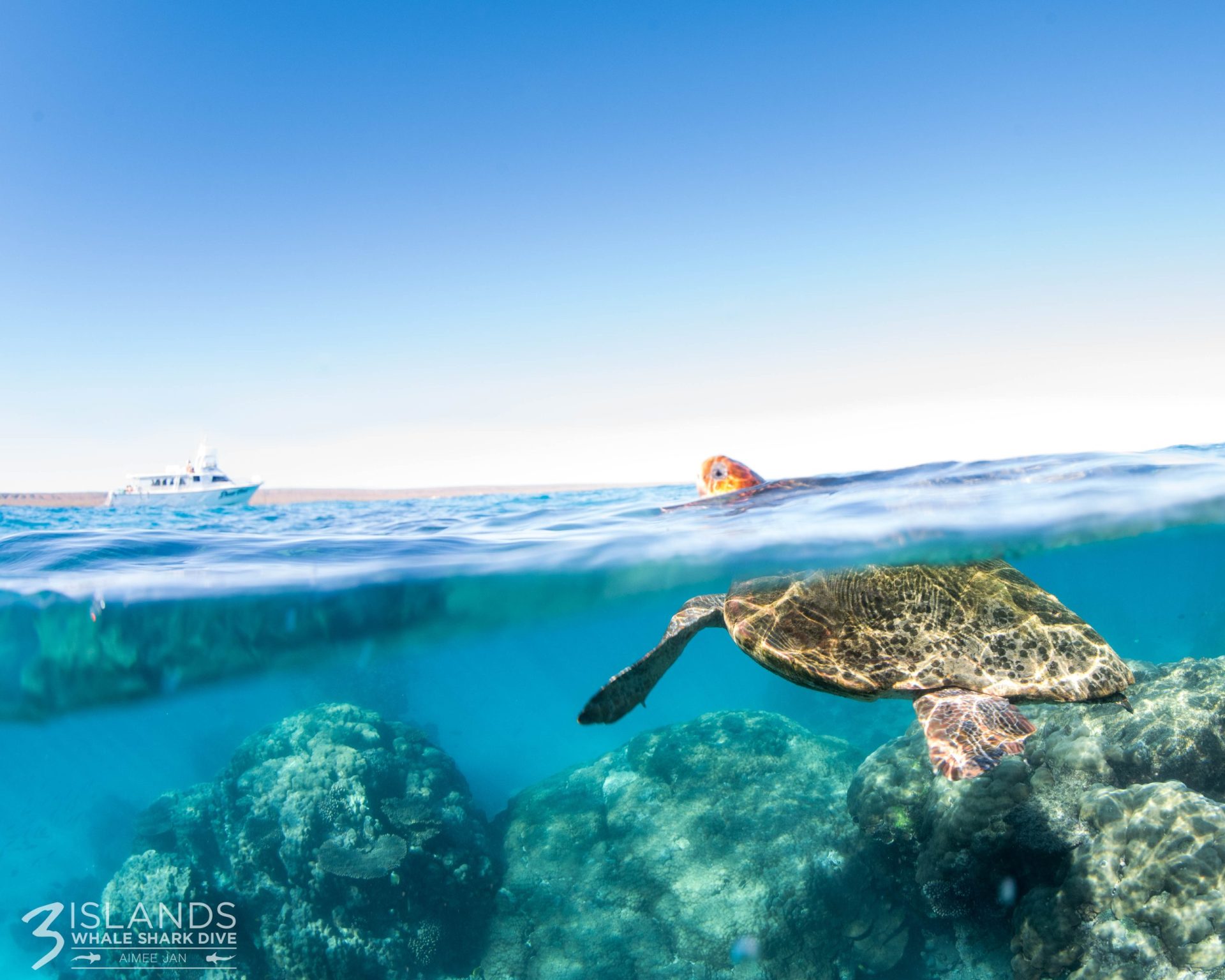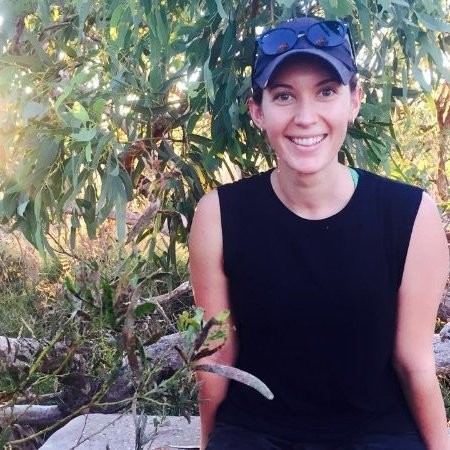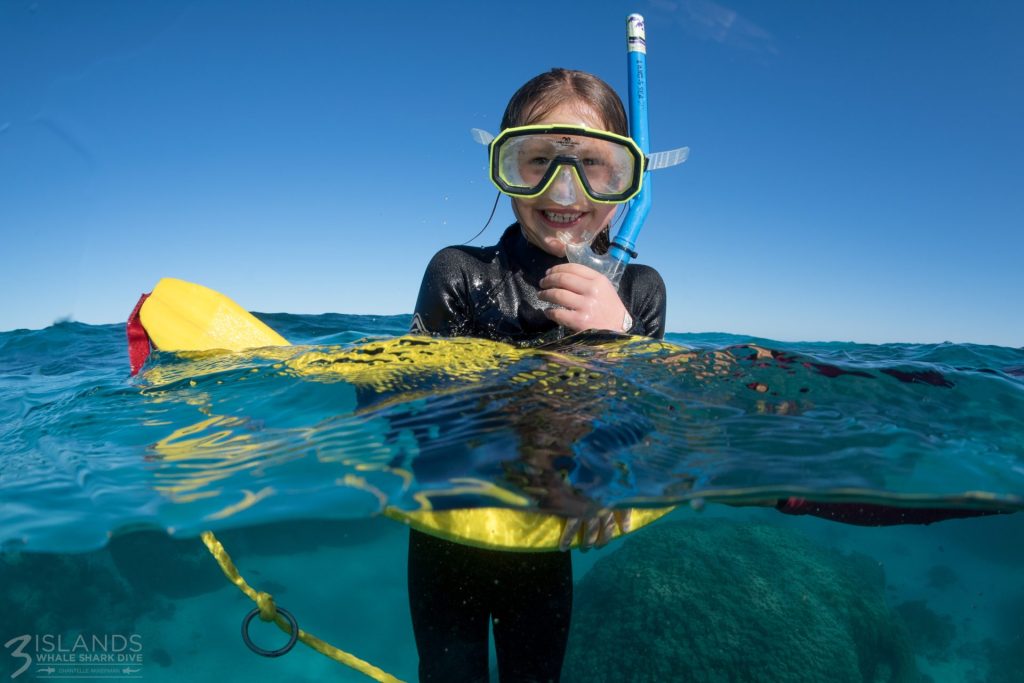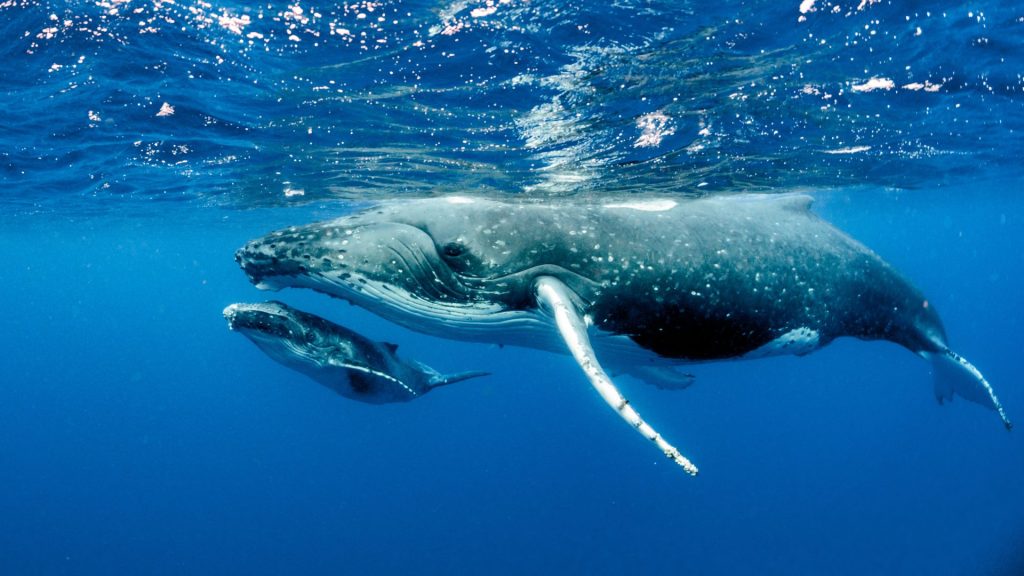Imagine the wonder of witnessing a rare and awe-inspiring natural spectacle: tiny turtles emerging from their sandy nests, guided by moonlight as they make their way to the ocean for the first time. An event that even Sir David Attenborough would bat an eyelid at. This magical experience awaits you in Exmouth, where four of the world's seven known turtle species gather to nest and hatch each year. Join us as we guide you through this unforgettable eco-adventure and provide insights into the world of these incredible marine creatures
Table of Contents
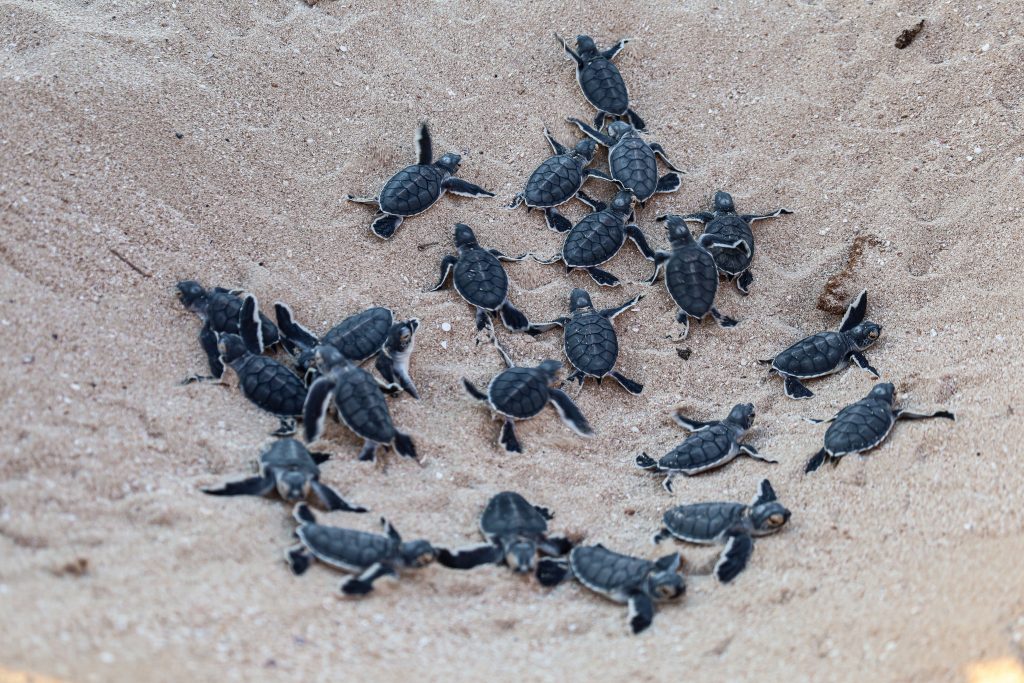
The Significance of the Ningaloo Reef & Turtle Hatching Exmouth
When is turtle nesting season? From November to March, pregnant female turtles make their way to the beach to lay their eggs, drawn by the summer heat that incubates the eggs in the sand. Each female typically makes up to three trips to shore to lay all her eggs during this period. It takes around 45-70 days for the eggs to hatch, and although some eggs hatch as late as April, most will hatch early on in the season.
This makes February and March the best time to visit Exmouth, if you want to experience both the nesting and hatching spectacles. Most commonly, turtle hatchlings will arrive at the surface and make their way to the ocean at night, when conditions are cooler and safer.
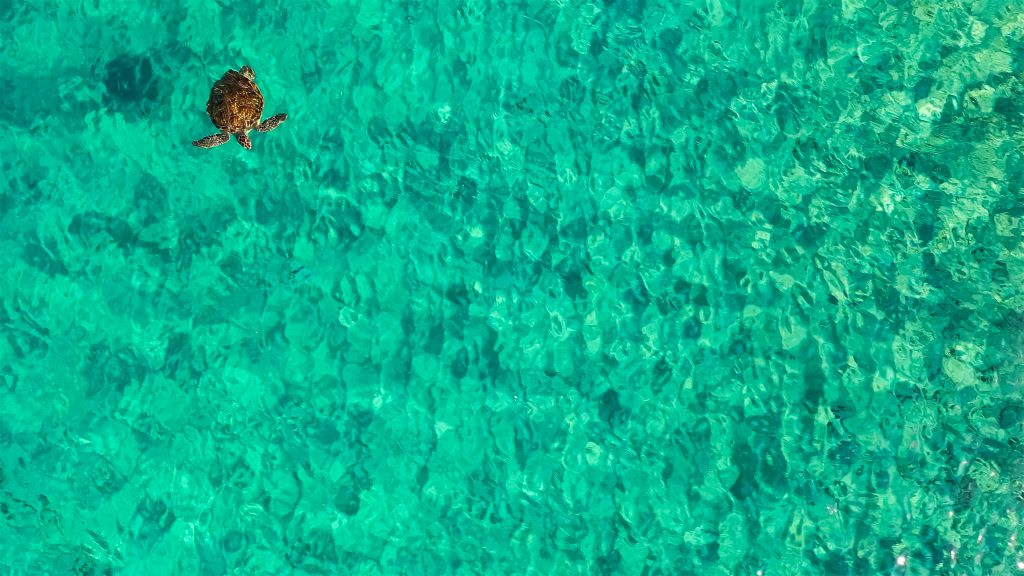
Best Time and Place to Witness Turtle Hatching
When is turtle nesting season? From November to March, pregnant female turtles make their way to the beach to lay their eggs, drawn by the summer heat that incubates the eggs in the sand. Each female typically makes up to three trips to shore to lay all her eggs during this period. It takes around 45-70 days for the eggs to hatch, and although some eggs hatch as late as April, most will hatch early on in the season.
This makes February and March the best time to visit Exmouth, if you want to experience both the nesting and hatching spectacles. Most commonly, turtle hatchlings will arrive at the surface and make their way to the ocean at night, when conditions are cooler and safer.
Turtle Watching Code
While there are multiple guided tours on offer with experienced professionals, it is very possible to come across hatching or nesting turtles on your own. However, you must know a few things if you do.
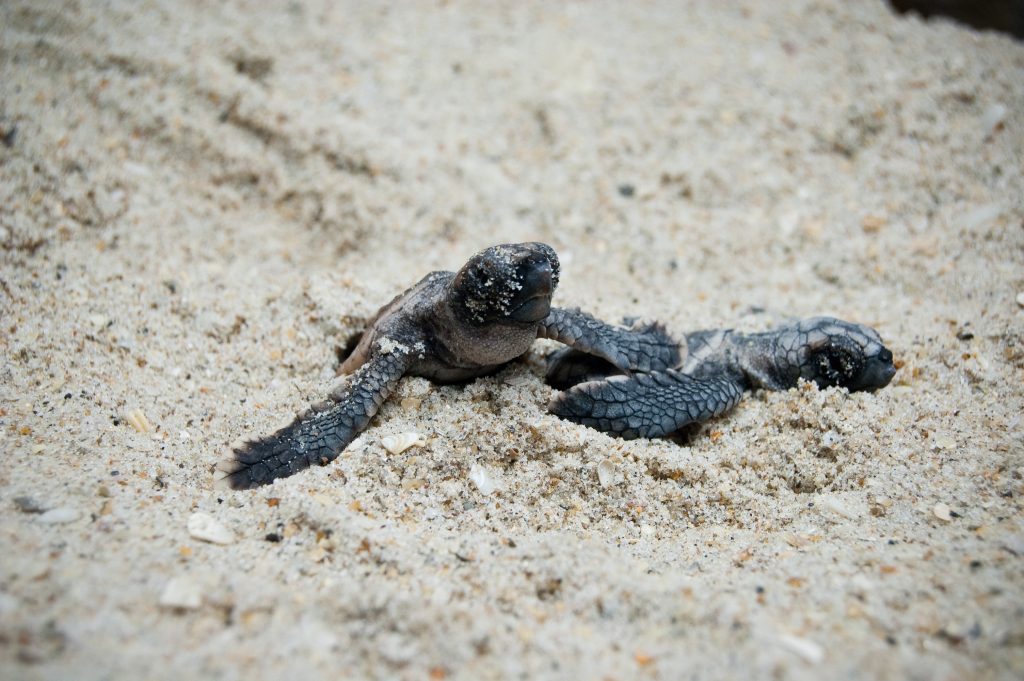
Hatching Etiquette
- Do not use torches: Hatchlings rely on the moonlight to guide them to the sea. Light from a torch, phone, or flash photography can disorient the hatchlings, which can mean they're unable to find the water and will sadly die. If you're a nesting season aficionado or just want to make sure you don't miss a thing, you can use a low-glow, turtle-safe red torch. Please be discreet and follow the appropriate instructions.
- Stand back and don't move too suddenly: While you may want to get as close as possible to these adorable creatures, it's essential to give them enough space to make their trip in peace. Getting too close, or moving too fast can scare the hatchlings and stop them from emerging from their nest and making it to the ocean. Stay at least 1 meter away from the nest and try not to disturb it in any way.
- Do not intervene: The baby turtles must be allowed to make their way from the nest to the ocean, without human assistance. The hatchlings map out their journey from nest to the ocean, allowing them to return when they are ready to lay their eggs. This journey also lets them exercise their flippers and lungs before entering the water, giving them the strength to swim once they get there.
Nesting Etiquette
- Do not use torches: Once again, it's crucial not to use artificial lights during nesting season. Light will discourage the turtles from nesting and may force them to return to the sea before laying their eggs.
- Move slowly, quietly, and stay low: Sudden movements might spook a turtle and prevent it from laying its eggs. If a turtle detects you, remember: STOP, DROP & ROCK. Stop immediately, slowly drop down low, and stay as still as a rock. Be as quiet and stay as low as you can to reduce the chance of detection or intervention.
- Keep the right distance: Understand the stages of turtle nesting and the appropriate distances. See The Department of Parks and Wildlife’s Turtle Watching Code of Conduct below to learn more about the right distances.
Turtle-watching code of conduct
Credit: The Department of Parks & Wildlife
The Life Cycle of Turtles and Their Nesting Habits
Turtle nesting in Exmouth, Western Australia, is an enthralling natural phenomenon. These marine reptiles undergo a remarkable life cycle and display unique nesting habits crucial to their survival.
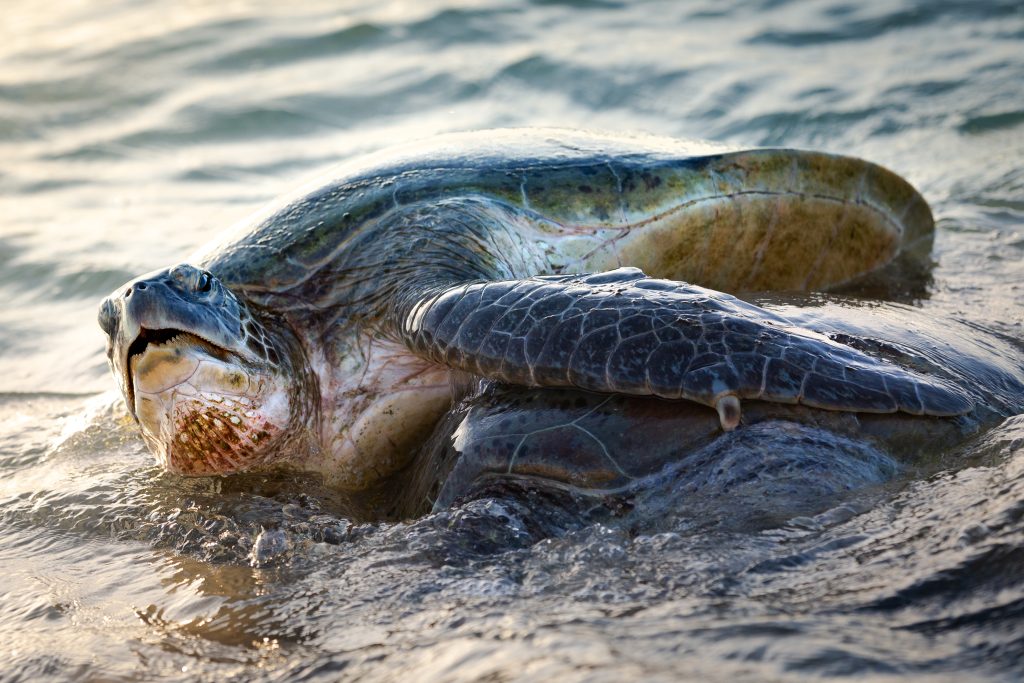
Stages of turtle development:
From hatchling to adulthood, turtles undergo an incredible transformation as they navigate the challenges of the marine environment.
Eggs: Female turtles lay their eggs in a sandy nest, where they incubate for 45-70 days.
- Hatchlings: Newly hatched turtles embark on a perilous journey towards the sea.
- Lost years: Young turtles drift in ocean currents, growing and developing in unknown locations.
- Adulthood: Mature turtles settle in feeding grounds, eventually migrating back to their natal beach to reproduce.
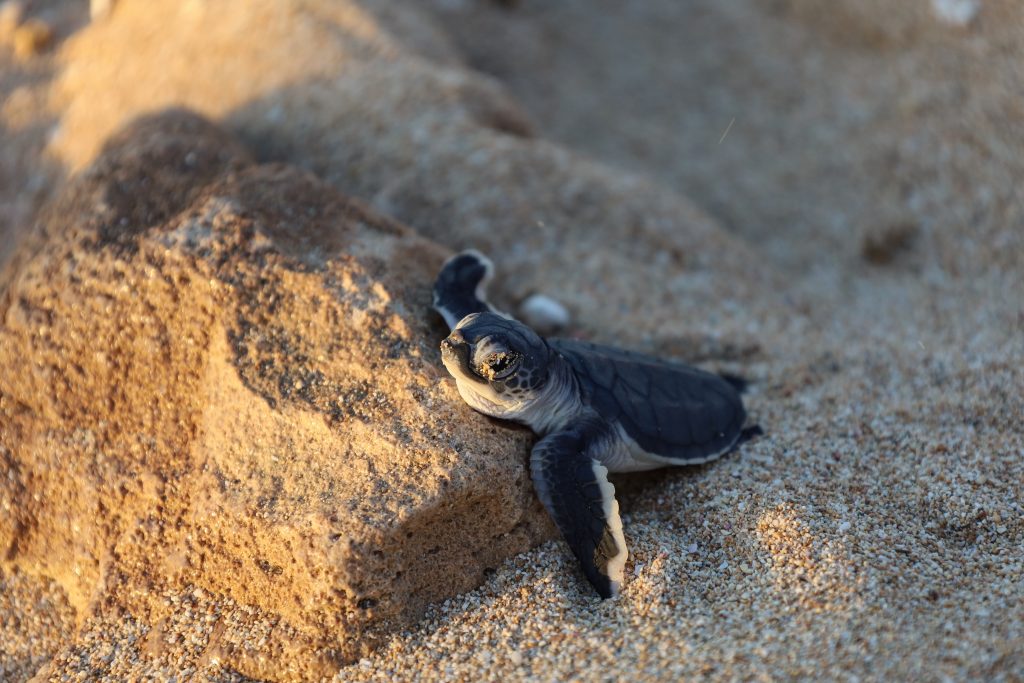
Nesting Behaviours and site selection
From hatchling to adulthood, turtles undergo an incredible transformation as they navigate the challenges of the marine environment.
Eggs: Female turtles lay their eggs in a sandy nest, where they incubate for 45-70 days.
- Hatchlings: Newly hatched turtles embark on a perilous journey towards the sea.
- Lost years: Young turtles drift in ocean currents, growing and developing in unknown locations.
- Adulthood: Mature turtles settle in feeding grounds, eventually migrating back to their natal beach to reproduce.
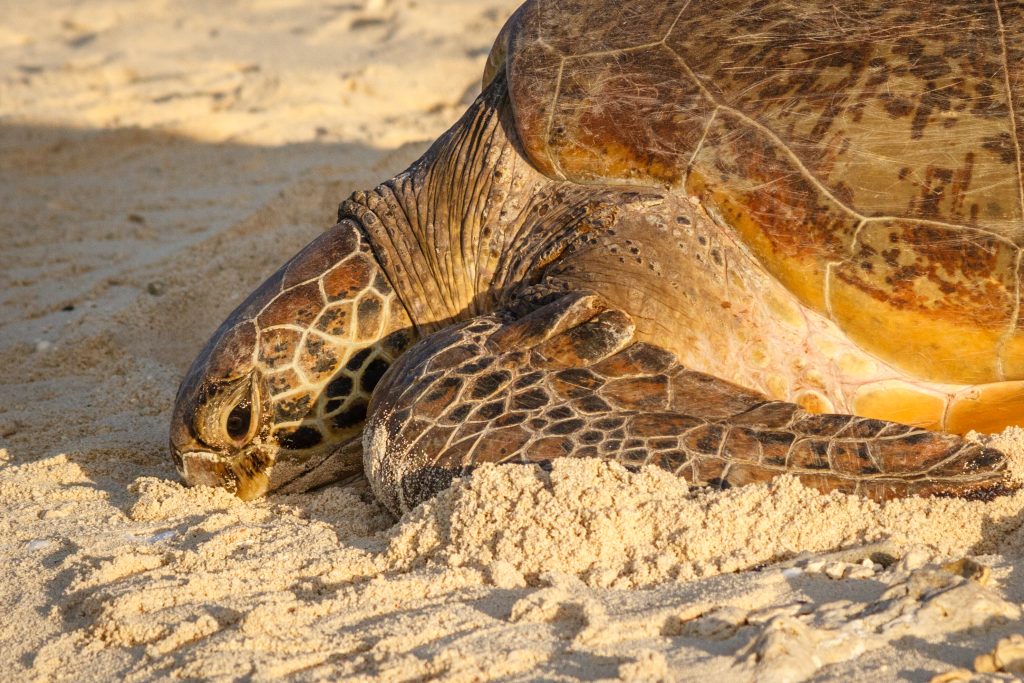
Challenges faced by turtle hatchlings
From predators to environmental obstacles, hatchlings must overcome numerous hurdles to reach adulthood.
Predators: Birds, crabs, and marine animals prey on vulnerable hatchlings.
- Light pollution: Coastal development can disorient hatchlings, leading them away from the sea.
- Climate change: Rising temperatures impact the sex ratio of turtle populations throughout the breeding season.
- Plastic pollution: Turtles can mistake plastic debris for food, resulting in ingestion and potential harm.
Conservation Efforts and Expertise
It's estimated that less than 1% of hatchlings will survive until adulthood, meaning over 900,000 hatchlings won't make it. This makes it imperative that all conservation efforts are made. Each species of turtle found in Exmouth is protected under the Endangered Species Act. By following the guidelines and etiquette mentioned above, you can play a vital role in supporting these conservation efforts.
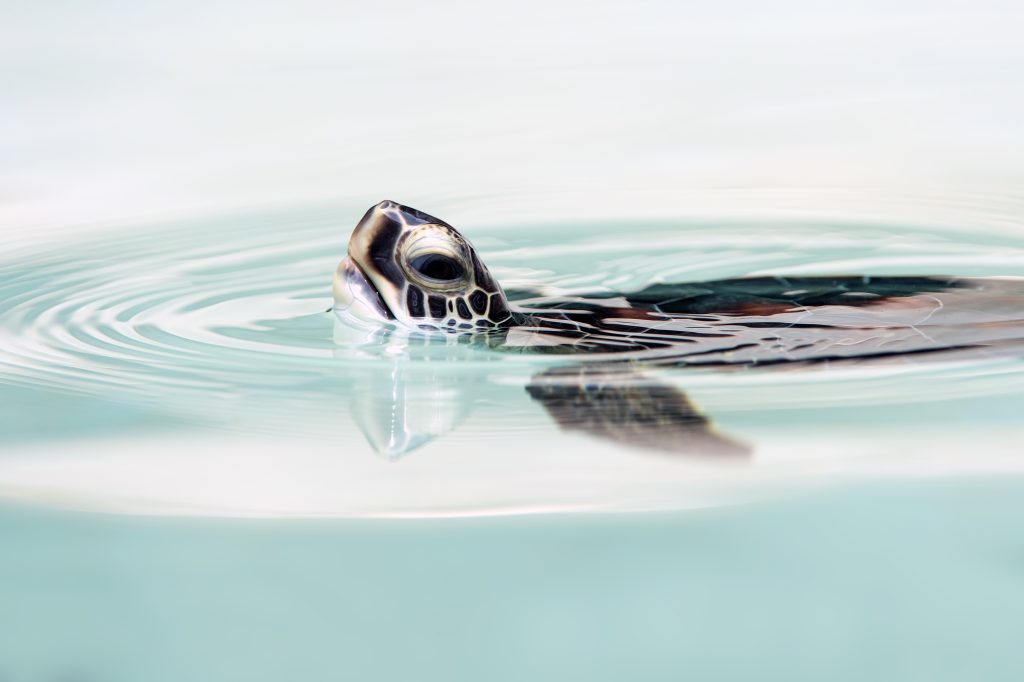
The Wonders of the Ningaloo Coast
The unique opportunity to witness turtle hatching season in Exmouth, Western Australia is an experience you'll cherish for a lifetime. By participating in responsible and sustainable tourism, you can help protect these endangered species and preserve their habitat for future generations.
To experience the magic of the Ningaloo Coast and for the chance to see loggerhead turtles, flatback turtles, green sea turtles and hawksbill turtles, join the passionate team at Three Islands Whale Shark Dive. Book an unforgettable Ningaloo Reef tour today for a once-in-a-lifetime underwater experience.
For more information and reservations, contact Three Islands Whale Shark Dive at +61 1800 138 501. Don't miss out on the chance to explore the breathtaking marine life of the Ningaloo Coast, including the mesmerizing whale sharks of Ningaloo
More...
Fun Humpback Whale Facts For Kids
Fun Humpback Whale Facts For Kids Humpback whales are among the most fascinating creatures in the ocean, captivating anyone lucky enough to spot them! Whether your family is planning a trip to the coast or simply curious about marine life, these fun humpback whale facts for kids will spark curiosity and wonder. Let’s dive into…
The Lifecycle of a Humpback Whale
The lifecycle of a humpback whale is one of the most amazing journeys on the planet. From their birth in warm tropical waters to their long migrations and incredible feeding techniques, humpbacks are constantly on the move, playing a vital role in ocean health along the way. At Three Islands Whale Shark Dive, we love…


